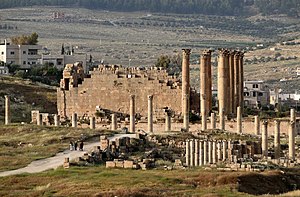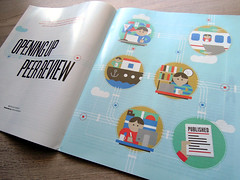| English: South facade of the Temple of Artemis seen from the South Theatre in Jerash, Jordan (Photo credit: Wikipedia) |
A couple of days after the peer review on my critical analysis draft, I read it again. Suddenly, it was horrible. I don't know how this happened. So, I went to my conference with Dr. Toffee last week under a cloud of angst. It wasn't too bad. She suggested a few tweaks for my thesis statement, and -- for once -- I saw what was wasn't working in the way I had put it. She liked my explanation of my critical model, especially the parts about Artemis and Atalanta; I was kind of nervous about that, so it was a relief for me. The analysis has to be reorganized some. I need to put in a few references to other scenes from The Hunger Games to show that it's not just in the scene I'm focusing on that Katniss is following the archetypes.
All in all, it went okay. I guess the draft wasn't as horrible as I thought.










